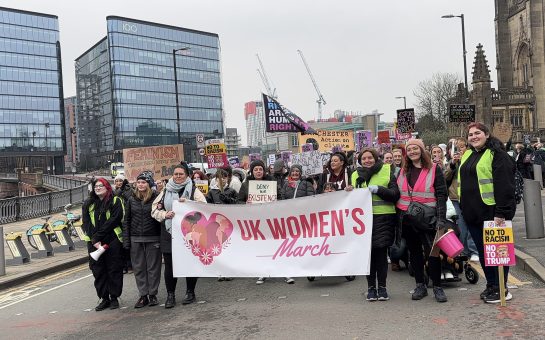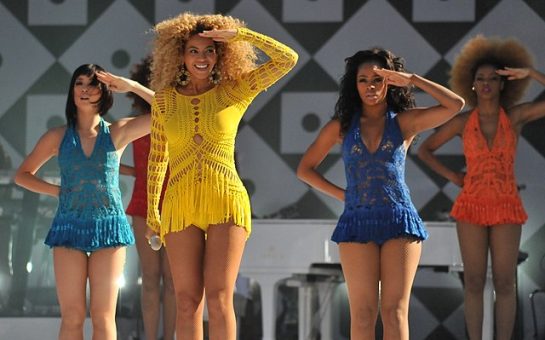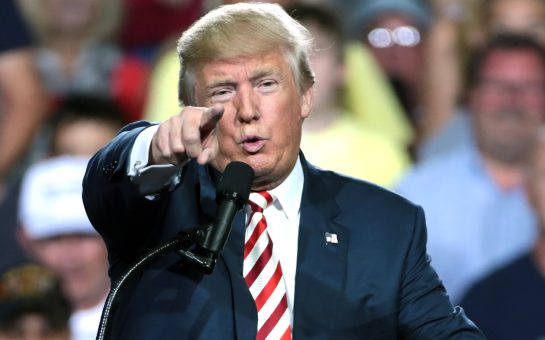The killing of General Qassem Soleimani in Iraq has been condemned by the CEO of the Manchester-based Ramadhan Foundation.
Reports of the attack indicate that it was made with air to surface rockets. At least one civilian is known to have been killed.
The attack at the airport comes at an extremely delicate moment, with ongoing US presence in Iraq being the subject of massive street protests, including the US embassy being attacked with molotov cocktails.
Mohammed Shafiq said: “The assassination of Qassem Soleimani is a violation of international law and the sovereignty of both Iraq and Iran.
“But let’s remember Soleimani was responsible for the death of thousands of Syrians killed when Iranian militias helped Assad. This was led [by] Soleimani himself.
“He was no saint and will be held to account for the blood of so many innocent people.
“However military attacks like this will make the World a more dangerous place and it requires all decent people not to allow the warmongers in America to push for another war.
“We will pay a heavy price if we ignore the lessons of the Iraq invasion.”
Shafiq’s condemnation of the killing opposes the response of Prime Minister Boris Johnson. In a speech to the Commons, Johnson backed the Trump administration’s decision, highlighting Soleimani’s terrorist links.
Johnson however, failed to acknowledge the disregard for Iranian sovereignty and the scale of provocation Soleimani’s death symbolises.
ACT OF WAR
A veteran of the Iran-Iraq war of the 1980s, Soleimani rose to head up Iran’s Qud’s Force, an elite faction of the military responsible for foreign and clandestine operations. He is known to have supported numerous terrorist groups throughout the region. He also fought with the Assad regime in the Battle of Aleppo, one of the most brutal episodes of the Syrian Civil War.
The General’s role in the Iranian government was crucial to maintaining its regional position. Thanks to Soleimani, Iran significantly increased its influence in Iraq, Syria, and Lebanon. There were even rumours that Soleimani was being considered as a potential candidate for the Iranian presidency.
Soleimani is believed by many to have been instrumental in the regional rise of the Iraq based Shia paramilitary group Kata’ib Hezbollah, believed to have been involved in the recent attack on the US embassy in Baghdad following extensive civil unrest.
In spite of Soleimani’s blood-soaked history, the attack has been widely condemned. As brutal as Soleimani was, he was a member of a foreign government, and his killing will incite a response which reflects his status in the Iranian government.
Some Iranian commentators are even suggesting that Iran has no choice but to respond aggressively, both to save face internationally and even to maintain internal stability.
Others have criticised the attack as shortsighted, highlighting that any strategic benefits from Soleimani’s death will be outweighed by the provocation to both Iran and Iraq.
A report in The Guardian states that the US has deployed 750 soldiers to Kuwait to act as a “rapid reaction force” against any perceived threat to US personnel in the region. It is unclear at present whether the attack at the airport in Baghdad is an explicit part of the US’ increased military presence.
The attack is one of the most high profile assassinations of the 21st century. The US has not carried out a killing of this magnitude for decades.
The assassination of such a high profile figure is likely to be treated by Iran as an act of war.
The very idea of de-escalation seems to have drawn further anger from some Iranian sources. A report from Channel Four News highlighted that the only countries seeking de-escalation are the US and its western allies. Iran cannot allow the US to kill and to violate its sovereignty and that of its neighbours with impunity.
In Washington, the attack has drawn both criticism and praise. Critics have called it an extrajudicial killing. The Trump administration has also been criticised for bypassing the legal procedures for ordering such an attack, as well as severely jeopardising regional stability.
Some are even accusing Trump of playing with the lives of Iranian and Iraqi civilians to bolster his own re-election campaign.
Meanwhile, supporters have praised the decisive action in eliminating a man known for supporting several groups ideologically opposed to the US.
The attack has also all but destroyed hopes that in spite of his hawkish exterior, President Trump did not intend to pursue any further war in the Middle East. Many critics had hoped that after senior advisor John Bolton stepped down, the administration may have adopted a softer approach to foreign policy.
Instead, they have been given a brazen show of strength by the US as Iran defies trade sanctions and looks eastwards to China to strengthen its regional position.



